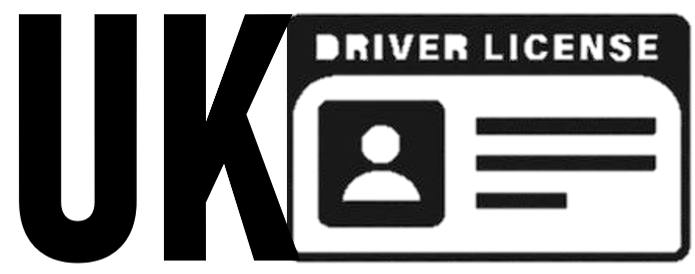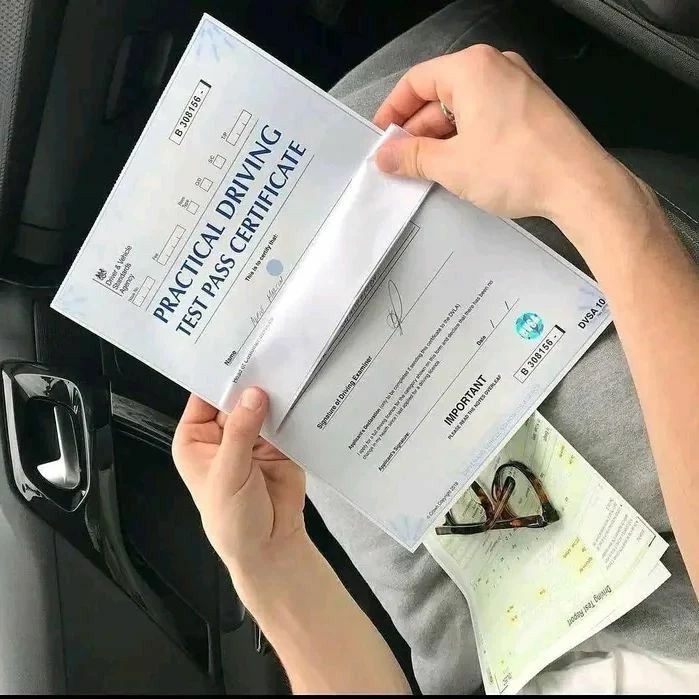Don’t Get Caught Out: Your Essential Guide to Checking Licenses
In today’s complex world, trust is a valuable commodity. Whether you’re hiring a contractor for a home renovation, seeking advice from a financial advisor, or simply want peace of mind about a healthcare provider, one crucial step often gets overlooked: checking their license. This isn’t just about bureaucracy; it’s about protecting yourself, your finances, and your safety.
You might think, “Why bother? Surely they wouldn’t be operating without one.” While that’s often true, assuming can lead to costly mistakes, dangerous outcomes, and legal headaches. This comprehensive guide will empower you with the knowledge and tools to confidently verify licenses, ensuring you make informed decisions every time.
Why Does Checking Licenses Matter to YOU?
Think of a license as a seal of approval, indicating that an individual or business has met specific standards of education, training, and ethical conduct set by a governing body. When you take the time to verify this, you’re essentially performing vital due diligence that benefits you in numerous ways:
- Protecting Your Safety: Imagine hiring an unlicensed electrician whose faulty wiring causes a fire, or an unqualified plumber whose shoddy work leads to extensive water damage. For healthcare professionals, an unverified license could literally put your health at risk.
- Preventing Financial Loss: Unlicensed operators often cut corners, deliver substandard work, or simply disappear with your money. Licensed professionals are typically bonded and insured, offering you recourse if things go wrong.
- Ensuring Quality and Professionalism: Licensing boards enforce standards. When you choose a licensed individual or company, you increase your likelihood of receiving competent, professional service that adheres to industry best practices.
- Legal Compliance and Avoiding Liability: In some cases, hiring an unlicensed individual for certain jobs (like construction) could even make you liable if an accident occurs on your property. For businesses, failing to verify employee or partner licenses can lead to regulatory fines and reputational damage.
- Peace of Mind: Knowing that you’ve done your homework and chosen a qualified, legitimate professional allows you to proceed with confidence.
Who Needs to Check Licenses?
Practically everyone, in various capacities!
- Consumers: Before hiring contractors (plumbers, electricians, roofers, general builders), financial advisors, real estate agents, home inspectors, auto mechanics, beauticians, healthcare professionals (doctors, nurses, therapists), and even dog walkers in some areas.
- Businesses: When onboarding new employees in regulated fields, vetting potential partners or suppliers, or ensuring their own operational compliance.
- Employers: To verify the credentials of job applicants, particularly for roles requiring specific professional certifications or licenses.
- Individuals: To confirm the validity of their own driver’s license, professional certifications, or software licenses.
How to Check Licenses: Your Step-by-Step Guide
The process of checking a license isn’t uniform across all professions or jurisdictions, but there are general principles and steps you can follow.
General Principles:
- Identify the Issuing Authority: Licenses are typically issued by state-level boards, local city/county departments, or federal agencies. This is your starting point.
- Gather Necessary Information: Before you begin, collect the individual’s full name, company name, and, if possible, their license number.
- Use Official Channels: Always go directly to the source – the official government website for the licensing board or department. Avoid third-party “license check” sites unless they are explicitly linked from an official government page, as they can sometimes be outdated or inaccurate.
Let’s break down how you can check licenses for some common professional categories:
1. Contractors, Tradespersons & Home Services
(e.g., Electricians, Plumbers, Roofers, General Contractors, HVAC Technicians, Landscapers)
These are often regulated at the state or local level.
| Information to Provide | Where to Check | What to Look For |
|---|---|---|
| Contractor’s Name, Company Name, License Number | State Contractor Licensing Board Website: (e.g., California Contractors State License Board, Florida Department of Business & Professional Regulation) Local City/County Clerk or Building Department: For local permits and business licenses. | License Status: Active, Inactive, Suspended, Revoked. Disciplinary Actions: Has the contractor faced complaints or penalties? Insurance & Bonding: Is their coverage current? (This often needs separate verification with their insurer). Specializations: Are they licensed for the specific work (e.g., electrical, plumbing)? |
2. Healthcare Professionals
(e.g., Doctors, Nurses, Dentists, Therapists, Pharmacists)
These are almost exclusively regulated at the state level by professional boards.
| Information to Provide | Where to Check | What to Look For |
|---|---|---|
| Practitioner’s Full Name, License Number | State Medical Board Website: (e.g., State Board of Medical Examiners) State Board of Nursing Website: State Board of Pharmacy Website: Professional Association Websites: (e.g., American Medical Association, though always cross-reference with the official state board). | License Status: Active, Expired, Suspended, Revoked. Disciplinary History: Any malpractice claims, sanctions, or restrictions on their practice? Specializations/Certifications: Are they board-certified in their claimed specialty? License Expiration Date: Ensure it’s current. |
Important Note: For Physicians, you can also use resources like the Federation of State Medical Boards (FSMB) Physician Data Center for a national view, but always confirm with the specific state board.
3. Financial & Legal Professionals
(e.g., Financial Advisors, Stock Brokers, Lawyers, Accountants)
These are often regulated by a mix of federal and state authorities.
| Information to Provide | Where to Check | What to Look For |
|---|---|---|
| Individual’s Full Name, Company Name | FINRA BrokerCheck: For brokers and investment advisors. SEC Investment Advisor Public Disclosure (IAPD) database: For registered investment advisors. State Bar Association Website: For lawyers. State Board of Accountancy Website: For Certified Public Accountants (CPAs). | Registrations: Are they properly registered with the relevant bodies? Disciplinary Actions: Any customer complaints, regulatory sanctions, or legal judgments? Exam Status: Have they passed required exams? Firm Affiliation: Are they associated with a legitimate firm? |
4. Drivers & Vehicles
| Information to Provide | Where to Check | What to Look For |
|---|---|---|
| Your Driver’s License Number | Your State’s Department of Motor Vehicles (DMV) or Department of Licensing (DOL) Website: Look for “Driver’s License Status Check.” | Status: Valid, Suspended, Revoked, Expired. Class: (e.g., Class D for standard passenger vehicles). Endorsements: (e.g., motorcycle, commercial vehicle). |
Note: You generally cannot check another individual’s driver’s license status without their consent due to privacy laws.
5. General Business Licenses
Most businesses, regardless of industry, require a basic business license to operate legally.
| Information to Provide | Where to Check | What to Look For |
|---|---|---|
| Business Name, Address | City/County Clerk’s Office Website: For local business licenses and permits. Secretary of State Website: For business entity registration (e.g., LLC, Corporation status). | Active Status: Is the business legally registered and in good standing? Registered Agent: Who is listed as their official contact? Business Type: Does it match their operations? |
Common Pitfalls and Red Flags
While checking licenses is powerful, be aware of these warning signs:
- Refusal to Provide License Details: A legitimate professional will proudly share their license number and the issuing authority.
- “My License is Pending”: While this can be legitimate for new businesses/professionals, ask for proof of application and verify the status with the board. Proceed with caution.
- Suspiciously Low Prices: Unlicensed individuals often underbid licensed pros because they don’t carry insurance, pay fees, or meet strict standards.
- Cash-Only Deals or Large Upfront Payments: Be wary. Licensed pros often require deposits, but demand for full payment upfront is a major red flag.
- Generic or Unprofessional Materials: A legitimate business will have professional branding, clear contact information, and often a professional website.
- Pressure Tactics: Don’t be rushed into a decision. Take your time to verify credentials.
- Only Providing a Business Registration Number: A business registration (e.g., with the Secretary of State) is not the same as a professional license for a specific trade (e.g., an electrician’s license). Both may be required.
Tools and Resources
- State Government Websites: Your primary resource. Search “[Your State] + [Profession e.g., Contractor Licensing Board]”
- Federal Government Agencies: For certain financial services (FINRA, SEC).
- Professional Association Directories: While useful, always cross-reference with the official licensing board.
- Better Business Bureau (BBB): Can offer insights into customer complaints, but the BBB is not a licensing authority.
Frequently Asked Questions (FAQ)
Q: What if I can’t find a license for a professional I want to hire? A: This is a major red flag. If you cannot find a valid, active license on the official state or local government website, do not hire that individual or company. It means they are operating illegally and likely uninsured.
Q: Is a business license the same as a professional license? A: No. A general business license allows a business entity to operate within a specific jurisdiction. A professional license (e.g., plumber’s license, doctor’s license) is specific to an individual’s qualifications to perform a particular regulated service. Many businesses need both.
Q: How often should I check a license? A: You should always check before engaging a new professional or company. For ongoing relationships, it’s wise to periodically recheck, especially if services are critical, as license statuses can change (e.g., due to expiration or disciplinary action).
Q: What should I do if I find a discrepancy or a fake license? A: Immediately cease engagement with that individual or company. Report them to the relevant state or local licensing board and potentially to consumer protection agencies. Your report helps protect others.
Q: Does having a license guarantee good service? A: A license indicates that the individual or business has met minimum standards and is legally authorized to perform services. It doesn’t guarantee a perfect experience, but it significantly increases your chances of competent, accountable, and safe service compared to an unlicensed operator. Always check references and reviews in addition to licensing.
Conclusion
Checking licenses might seem like an extra step, but it’s an indispensable part of being a savvy consumer, a responsible employer, or a diligent business owner. You have the power to protect yourself from fraud, poor workmanship, and potential danger. Embrace this simple yet powerful habit, and you’ll find greater peace of mind in every decision you make. Don’t just trust; verify. Your safety and satisfaction depend on it.

